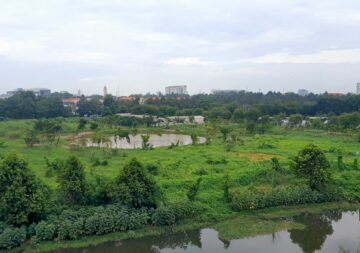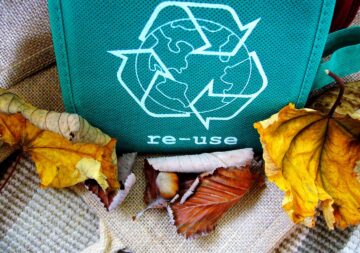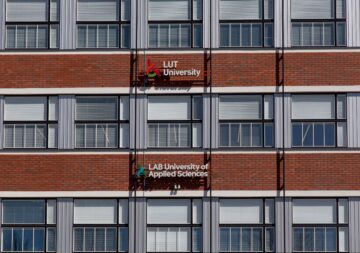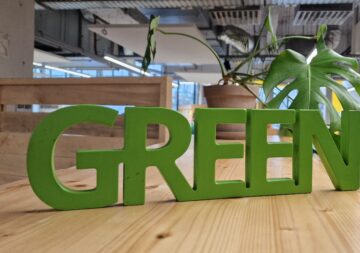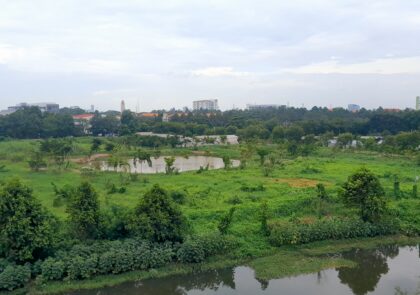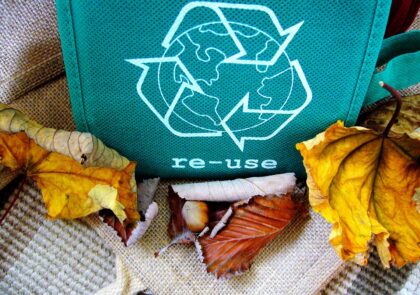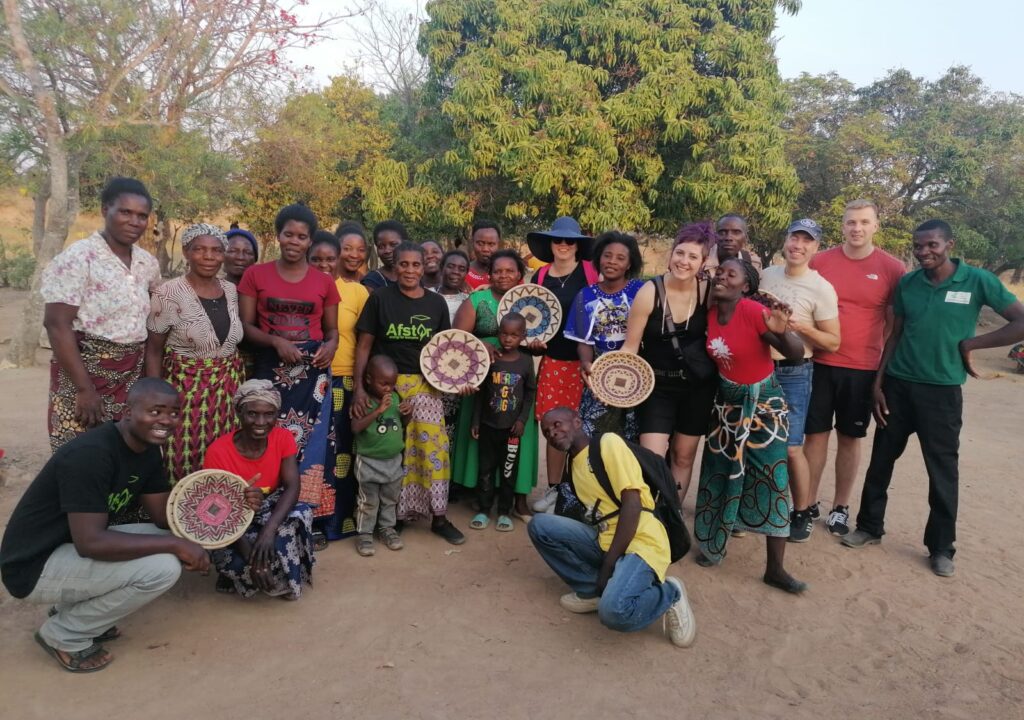
This article discloses the initial findings from the CEZAAM project. While the project broadly aims to investigate various aspects, including the educational environment in Zambia, our attention within this text centers on exploring the tangible effects that access to electric cookers is making on the lives of numerous communities in the country.
Authors: Leticia Tomas Fillol & Antti Pinomaa
One of the objectives of the CEZAAM project, led by LAB University of Applied Sciences, is to gain a comprehensive understanding of the impacts and opportunities that Afstor Oy Ltd’s solar stoves provide to under-served Zambian communities by facilitating access to electrification and digitalization. This article presents relevant insights about acceptance, adoption, and impacts of solar cookers in the Zambian rural communities. Across many African countries, traditional biomass sources, particularly firewood, charcoal, or kerosene have been the main source of energy for cooking (Cardoso, J.P. et al. 2023). The drawbacks of using the traditional fuels are well known, including negative impacts on the environment, health, human and economic development, and safety. Solar energy holds a high potential to become one of the main sources of energy in Africa, offering a solution to overcome the adverse effects of traditional fuels. One of the key messages of this study is that the socio-economic effects of owning a solar cooker extend far beyond cooking tasks, and are perceptible in multiple dimensions in people’s lives.
To gain understating of the Zambian local context, several surveys were conducted between April and October 2023 in multiple rural households across different Zambian villages that had received Afstor’s solar cookers. The initial round of interviews was carried out by the Green Living Movement (GLM), while a subsequent set of interviews was conducted by our LAB and LUT team during the site visits in October 2023. These on-site visits were essential to provide us with invaluable insights that deepened our comprehension of the local conditions and the operational environment. More information about the on-site visits can be found from the blog (LAB University of Applied Sciences 2023).
Acceptance and Adoption
The extent that a new technology becomes integrated in people´s culture and views can define the acceptance level. The acceptance is influenced by factors such as the perceived usefulness and ease to use of the new technology (Iessa et al. 2017). Adoption, on the other hand, refers to the degree in which people willingly accept and integrate the new technology in their daily routines (Iessa et al. 2017). Both are crucial concepts for understanding how new technologies are integrated into society. Some studies point out the existing local practices as an obstacle to new technology acceptance and adoption, and attribute the low acceptance to the radical change on (cooking) habits that the solar cooker imposes (Iessa et al. 2017). There is no doubt that different context and cooking practices can lead to very different usage and desirability levels of new technologies. In the case of the Zambian villages targeted in this study, however, high levels of both acceptance and adoption were found. Villagers showed a positive attitude and enthusiasm for either owning or using a solar stove. Those who did not own one, expressed openly their wishes to acquire one, and this desire was not limited to words; it was also demonstrated through their actions. To potentially receive a stove, community members are encouraged to actively participate in tree planting and forest regeneration activities. Many members have shown their support for these initiatives. On the other hand, owners of solar cookers expressed a range of positive effects, and many of them credited it with making their lives easier and more simple. The high levels of adoption are evident by the high rate of utilization, as all the interviewed people reported using the cooker 2 or 3 times daily, meaning that the solar cooker effectively replaced traditional ways of cooking. Furthermore, about 50% of respondents acknowledged sharing the solar cooker with the neighbors on special occasions, such as when they have visitors. This underscores the willingness to embrace this new technology among those who do not yet own it. In contrast to some other studies that highlight the limitations of solar cookers for preparing certain traditional foods, or concerns about potential taste modifications (Wilson & Green 2000), this was not seen as an inconvenient but rather as new opportunities for culinary innovation. As one farmer pointed out, it even opened up the possibility of preparing “special foods.” In addition to using the solar cooker for meal preparation, people also utilize it to heat up water for bathing, charge phones, use lights from the cooker charging socket and outlet, and e.g. recharge lanterns for evening use. While everyone in the family is perceived to benefit from having a solar cooker, it is the wives and children who experience the most significant impact on their everyday lives.
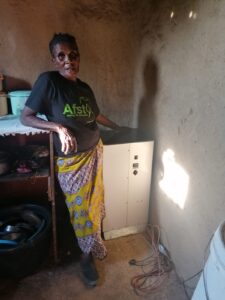
Image 1. Afstor solar stove (Image: Terhi Tuominen)
Impact and benefit to family members
The whole family benefits already from cost saving perspective, as now the renewable electricity is available without additional expenses, and accordingly, they benefit from reduced harmful smoke emissions. However, women, in particular, perceive benefits from many other angles. One of the most prominent advantages perceived is the time saved in various aspects of their lives. The most notable aspect of time-saving is the elimination of the need to go gather firewood or buy charcoal from long distances from their homes and village. Besides that, the cooking times are reduced significantly after having the solar cooker. Moreover, since the introduction of the solar cooker, even men who previously didn’t cook have begun to participate, further freeing up time for the women. Some women mentioned that they use this newfound free time to engage in more field work, or crafts such as the “Chisuwos” seen in the article illustration, which they can sell for extra income. Thus, the freed time can be used effectively to new small business creations. Others expressed experiencing less stress and a sense of peace of mind as compared to before.
When it comes to the impact to children, they also experience the benefit of having more time for them. Previously, they were often tasked with fetching firewood, but this responsibility has vanished now. Some children now attend school more regularly since they no longer need to collect wood. Additionally, they can enjoy breakfast before school, and thus having more energy in learning at school. In addition, they also have possibility to take warm baths. Light bulb feed from the solar cooker or rechargeable lamps enable kids to study during the evenings, which also eases the burden on mothers, who can relax when their children are engrossed in their schoolwork. Another relevant outcome that was detected is that children have begun to learn how to use the solar cooker and are capable of preparing their own meals when their parents are not at home. We view this as a significant opportunity to address and transform structural gender inequality and to encourage a shift in gender roles for future generations. With access to this new technology, all family members, regardless of their gender or age, seem to take pleasure in participating in cooking tasks.
References
Cardoso, J.P., Couto, A., Costa, P. A., Rodrigues, C., Facao, J., Loureiro, D., Wambugu, A., Banda, S., Izael, D. A. & Simoes, T. 2023. Solar Resource and Energy Demand for Autonomous Solar Cooking Photovoltaic Systems in Kenya and Rwanda. Solar. Vol. 3(3), 487–503. Available at https://doi.org/10.3390/solar3030027
Iessa, L. De Vries, Y. A., Swinkels, C. E., Smits; M. & Butjin, C. A. A. 2017. What’s cooking? Unverified assumptions, overlooking of local needs and pro-solution biases in the solar cooking literature. Energy Research & Social Science. Vol. 28, 98-108. Available at https://doi.org/10.1016/j.erss.2017.04.007
LAB University of Applied Sciences. 2023. Yhteisöllisiä yrittäjyyskasvatuksen menetelmiä Sambiaan – communal entrepreneurship education. CEEZAM Project. Available at https://lab.fi/en/project/yhteisollisia-yrittajyyskasvatuksen-menetelmia-sambiaan-communal-entrepreneurship-education
Wilson, M. & Green J.M. 2000. The feasibility of introducing solar ovens to rural women in Maphephethe, J. Fam. Ecol. Consum. Sci. Vol. 28(1), 54–56. Available at https://www.ajol.info/index.php/jfecs/article/view/52793
Authors
Leticia Tomas Fillol is a Junior researcher in the Laboratory of Electricity Market and Power Systems in LUT University and LAB University of Applied Science.
Antti Pinomaa is an Associate Professor in the Laboratory of Electricity Market and Power Systems in LUT University and LAB University of Applied Science.
Illustration: Terhi Tuominen
Published 21.11.2023
Reference to this article
Tomas Fillol, L. & Pinomaa, A. 2023. Empowering Zambian Communities with Solar Cookers. LAB Pro. Cited and the date of citation. Available at https://www.labopen.fi/en/lab-pro/empowering-zambian-communities-with-solar-cookers/
